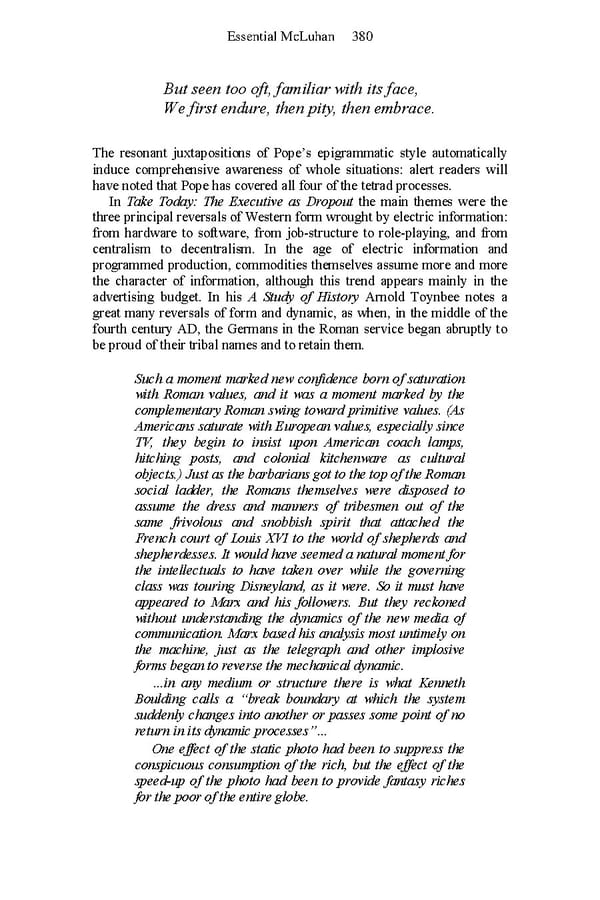Essential McLuhan 380 But seen too oft, familiar with its face, We first endure, then pity, then embrace. The resonant juxtapositions of Pope’s epigrammatic style automatically induce comprehensive awareness of whole situations: alert readers will have noted that Pope has covered all four of the tetrad processes. In Take Today: The Executive as Dropout the main themes were the three principal reversals of Western form wrought by electric information: from hardware to software, from job-structure to role-playing, and from centralism to decentralism. In the age of electric information and programmed production, commodities themselves assume more and more the character of information, although this trend appears mainly in the advertising budget. In his A Study of History Arnold Toynbee notes a great many reversals of form and dynamic, as when, in the middle of the fourth century AD, the Germans in the Roman service began abruptly to be proud of their tribal names and to retain them. Such a moment marked new confidence born of saturation with Roman values, and it was a moment marked by the complementary Roman swing toward primitive values. (As Americans saturate with European values, especially since TV, they begin to insist upon American coach lamps, hitching posts, and colonial kitchenware as cultural objects.) Just as the barbarians got to the top of the Roman social ladder, the Romans themselves were disposed to assume the dress and manners of tribesmen out of the same frivolous and snobbish spirit that attached the French court of Louis XVI to the world of shepherds and shepherdesses. It would have seemed a natural moment for the intellectuals to have taken over while the governing class was touring Disneyland, as it were. So it must have appeared to Marx and his followers. But they reckoned without understanding the dynamics of the new media of communication. Marx based his analysis most untimely on the machine, just as the telegraph and other implosive forms began to reverse the mechanical dynamic. …in any medium or structure there is what Kenneth Boulding calls a “break boundary at which the system suddenly changes into another or passes some point of no return in its dynamic processes”… One effect of the static photo had been to suppress the conspicuous consumption of the rich, but the effect of the speed-up of the photo had been to provide fantasy riches for the poor of the entire globe.
 Essential McLuhan Page 386 Page 388
Essential McLuhan Page 386 Page 388